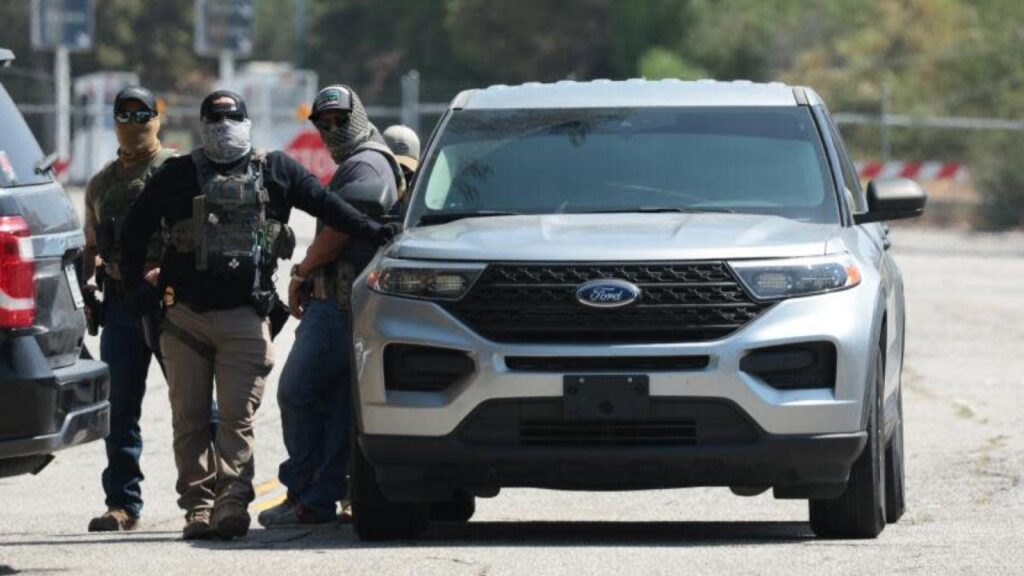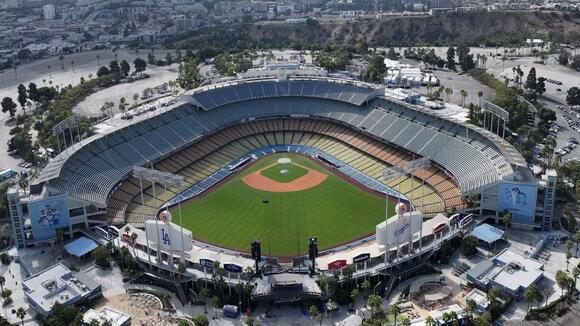When federal immigration agents showed up at Dodger Stadium on June 19, 2025, and were refused entry, it wasn’t just a one-off protest. This clash reflects broader tensions between private institutions and federal enforcement—and how venues are drawing lines in a fraught immigration landscape.

ICE Agents Denied Entry to Dodger Stadium
The June 19 incident at Dodger Stadium is more than a protest—it’s a flashpoint. It underscores growing tension between local autonomy and federal authority, the blurred presence of federal agencies, and the pressure now on cultural institutions to take a stand amid escalating immigration enforcement.
What happened that day?
On June 19, footage circulated showing unmarked vans and masked federal officers near Gate E. The Dodgers’ official X account said ICE requested entry to the parking lots and were denied, asserting private‑property rights.
However, DHS clarified the agents were from Customs and Border Protection (CBP), not ICE, and had “briefly” used the lot unrelated to any enforcement. Within hours, protesters had gathered, carrying signs like “ICE out of LA!”; LAPD formed a buffer so the agents could leave peacefully.
Why this matters
Private property pushing back
Dodgers, like other venues, invoked property rights. Councilmember Eunisses Hernandez noted businesses can legally bar federal agents from private grounds—with the caveat that public property is treated differently .
Blurred lines between CBP and ICE
The Dodgers mentioned “ICE,” but DHS says “CBP.” While different in function—ICE focuses on interior enforcement, CBP on borders—tactical gear and vehicles look similar to the public, fueling confusion .
Reflects broader anxiety
Los Angeles has seen workplace raids, Home Depot operations, and unionized employees receiving rights advisories. Bay Area teams are doing the same—prepping staff on what to do if ICE shows up.

Voices from the field
- Player Kiké Hernández, who plays for the Dodgers, took to social media: “I am saddened and infuriated by what’s happening … our community being violated, profiled, abused and ripped apart.”
- Rep. Jimmy Gomez criticized DHS and ICE: “straight up lying” about agent identities.
- Governor Gavin Newsom condemned federal tactics, saying they incite fear in immigrant neighborhoods.
Bigger-picture implications
- Private venues drawing new lines. Owners of businesses should now consider what to do if enforcement shows up on their property—especially in sanctuary cities.
- End‑user risk still high. Even with CBP rather than ICE, being near agents, staging yards, and staging areas can create trauma. Arrests elsewhere that day—including a pregnant woman at Home Depot—highlight that reality .
- Tactical confusion fuels distrust. If DHS agencies can swap hats but show up in similar gear, the public may not trust distinctions—hindering transparency.
What’s next?
- Dodgers’ next moves: The team says they’re planning “support initiatives” for immigrant communities—likely legal clinics or outreach—though details are pending .
- Nationwide trend: Bay Area teams are already prepping memos on rights and warrant requirements. If LA venues follow suit, we may see a new era of venue-based civil-rights readiness.
FAQs
Do teams have the right to refuse federal agents?
Yes—on private property, teams can deny access unless agents have a valid warrant or consent. Public areas fall under different rules.
Are you safer at events if ICE is denied?
Not necessarily. While refusal stops staging in private lots, enforcement can occur nearby—like at entrances or public transport points.






